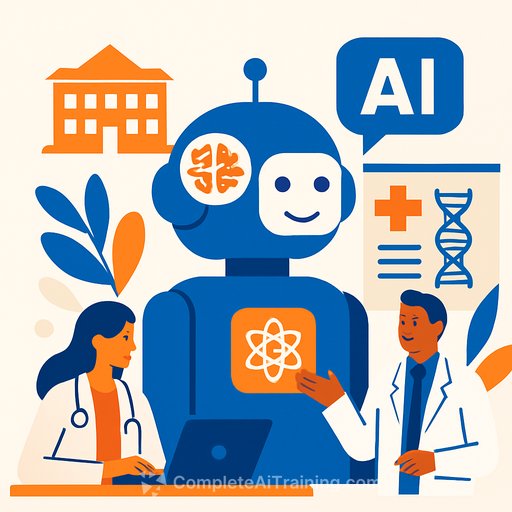Miller School of Medicine Launches Office of AI in Medical Education
The University of Miami Miller School of Medicine has established the Office of AI in Medical Education to prepare medical students for the ethical and effective use of artificial intelligence (AI) in healthcare. This initiative supports faculty by providing tools and strategies to incorporate AI into their teaching and clinical work. Dr. Shirin Shafazand leads the office as its first faculty director and introduced the course, “Introduction to Artificial Intelligence in Medicine and Public Health,” in 2025.
Integrating AI into Medical Training
As AI becomes more integral to healthcare—from predictive analytics to precision medicine—it is essential that future doctors understand how to use these tools responsibly. AI assists in clinical workflows, reduces provider fatigue, improves decision-making, and supports personalized education for medical students. The new office aims to ensure students learn to apply AI thoughtfully and ethically in their practice.
Dr. Latha Chandran, executive dean for education at the Miller School, explains that AI integration will create more time for physicians to focus on patient communication and care, with AI serving as a knowledgeable assistant. This fits with the school’s mission to train compassionate, well-prepared physicians.
Goals of the Office of AI in Medical Education
- Train students in ethical and thoughtful AI use
- Provide faculty with tools and methods to integrate AI
- Encourage innovation in AI-supported learning
- Evaluate the effects of AI on educational outcomes
Dr. Shafazand brings strong clinical and research experience to her role. She holds board certifications in pulmonary, critical care, and sleep medicine, and earned a master’s in health services research from Stanford University. Her leadership in the M.D./M.P.H. program and expertise in epidemiology and health policy enhance the office’s efforts.
She emphasizes the importance of addressing key questions: how to teach AI, when to introduce it to students, and how to maintain ethical standards. The goal is to equip learners with the skills needed in a data-driven healthcare environment to improve patient care and provider well-being.
David Thole, serving as technical director, specializes in machine learning and AI system integration. His background in large language models and model validation supports the office’s mission to align emerging AI technologies with medical education.
Advancing AI Education at the Miller School
- The AI elective course offers M.D./M.P.H. students hands-on experience with machine learning, natural language processing, and prompt engineering. It covers ethical, regulatory, and technical aspects, culminating in projects like building AI agents.
- A recent study published in NEJM AI involved a physician, ethicist, and medical student from the Miller School. They assessed AI chatbots’ abilities to manage ethical dilemmas in clinical settings, highlighting both the potential and the need for careful oversight.
This effort aligns with the growing importance of AI literacy in health professions education. Educators can explore relevant AI courses and certifications to strengthen their skills at Complete AI Training.
Your membership also unlocks:





